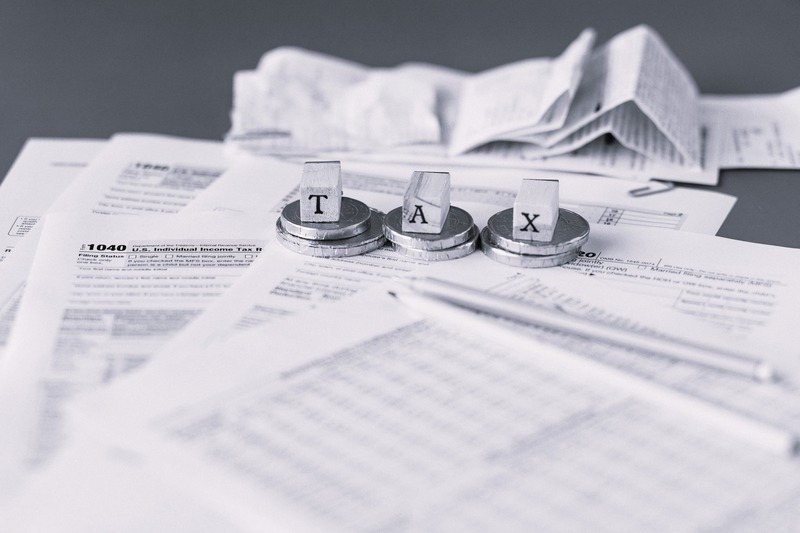
Ease of Filing Tax Returns
By: Atty. Mabel L. Buted
"Through the years, in keeping with this standard, our government continues to pursue measures to simplify the manner and the process in the filing and payment of taxes, and in the submission of tax information returns and other reportorial requirements. The most recent of which is the simplified tax payment process under the Ease of Paying Taxes Act (“EOPT”)."
 Mabel L. Buted +632 8403-2001 loc.160 |
One of the principles of a sound tax system is administrative feasibility. It means that tax laws should be capable of being effectively administered and enforced with the least inconvenience to the taxpayer (G.R. No. 193007, July 19, 2011). The taxes to be paid must be simple and clear and the tax system should allow taxpayers to conveniently file their tax returns and pay their taxes.
Through the years, in keeping with this standard, our government continues to pursue measures to simplify the manner and the process in the filing and payment of taxes, and in the submission of tax information returns and other reportorial requirements. The most recent of which is the simplified tax payment process under the Ease of Paying Taxes Act (“EOPT”).
 The BIR’s drive to improve and adopt is apparent in the EOPT law. For more than a decade now as a tax lawyer, I have witnessed how the BIR’s tax filing and payment system has evolved.
The BIR’s drive to improve and adopt is apparent in the EOPT law. For more than a decade now as a tax lawyer, I have witnessed how the BIR’s tax filing and payment system has evolved.
In 2012, the BIR started introducing electronic filing of tax returns. Manual filers were given the chance to innovate with the introduction of the eBIRForms package. The filing software was developed primarily to aid taxpayers who are not registered with the Electronic Filing and Payment System (“eFPS”) (non-EFPS filers) in preparing their tax returns by providing them with a facility where they can directly encode and validate the data indicated in the tax returns and submit these directly to the BIR system. Few years later, the use of the package was mandated to certain type of taxpayers (e.g., taxpayers who are filing for “no payment return”) to lessen the long queues at BIR’s offices during tax filings. The BIR also made possible the electronic payment of taxes even if the tax returns are filed only using the eBIRForms. Online payment is not limited to eFPS-registered taxpayers anymore.
Compliance in the submission of the required attachments to the tax returns were also simplified. In 2014, the submission of all alphabetical lists of payees whose income payments were subjected to withholding taxes was made online. Previously, withholding agents who are non-EFPS filers were allowed to submit the alphalists in floppy diskettes/CDs. In 2018, the submission of the alphalists of payees, which used to be monthly, was streamlined by requiring the filing on a quarterly basis. In 2019, in the case of top withholding agents, the preparation of the semestral list of regular/local suppliers of goods and services was discontinued for being superfluous. In year 2020, at the height of the COVID-19 pandemic, the BIR introduced the Electronic Audited Financial Statements (“eAFS”) application system that enabled the taxpayers to submit their filed Income Tax Returns (“ITR”), Audited Financial Statements (AFS) and other required attachments to the ITRs online.
Also, just last year, taxpayers were no longer required to prepare and file their VAT returns every month as the filing and payment of VAT was already made on a quarterly basis.
Now, under the EOPT, tax filing and payment were made even easier with the “file and pay anywhere” rule. The rule permits the taxpayers to file their returns and pay their taxes, either electronically or manually, at any authorized agent bank, revenue office, or authorized tax software provider. It must be emphasized that the law allows either electronic or manual filing and payment of taxes. The law does not mandate that only one method is followed. Also, taxpayers are no longer required to pay their taxes only at the BIR revenue office where they are registered or at a bank authorized by the revenue district office where they are registered. They cannot be penalized for having filed and paid their taxes at the wrong venue.
I trust that with the new law, taxpayers will be able to appreciate that it is easy to comply with their tax obligations. The government must also not stop finding ways to make taxpayers at ease in paying their taxes. The goal must be for taxpayers not to be intimidated with the complexity in filling up tax returns and the computation of exemptions, deductions, and liabilities that come with it.
The author is a junior partner of Du-Baladad and Associates Law Offices (BDB Law), a member-firm of WTS Global.
The article is for general information only and is not intended, nor should be construed as a substitute for tax, legal or financial advice on any specific matter. Applicability of this article to any actual or particular tax or legal issue should be supported therefore by a professional study or advice. If you have any comments or questions concerning the article, you may e-mail the author at This email address is being protected from spambots. You need JavaScript enabled to view it. or call 8403-2001 local 160.




